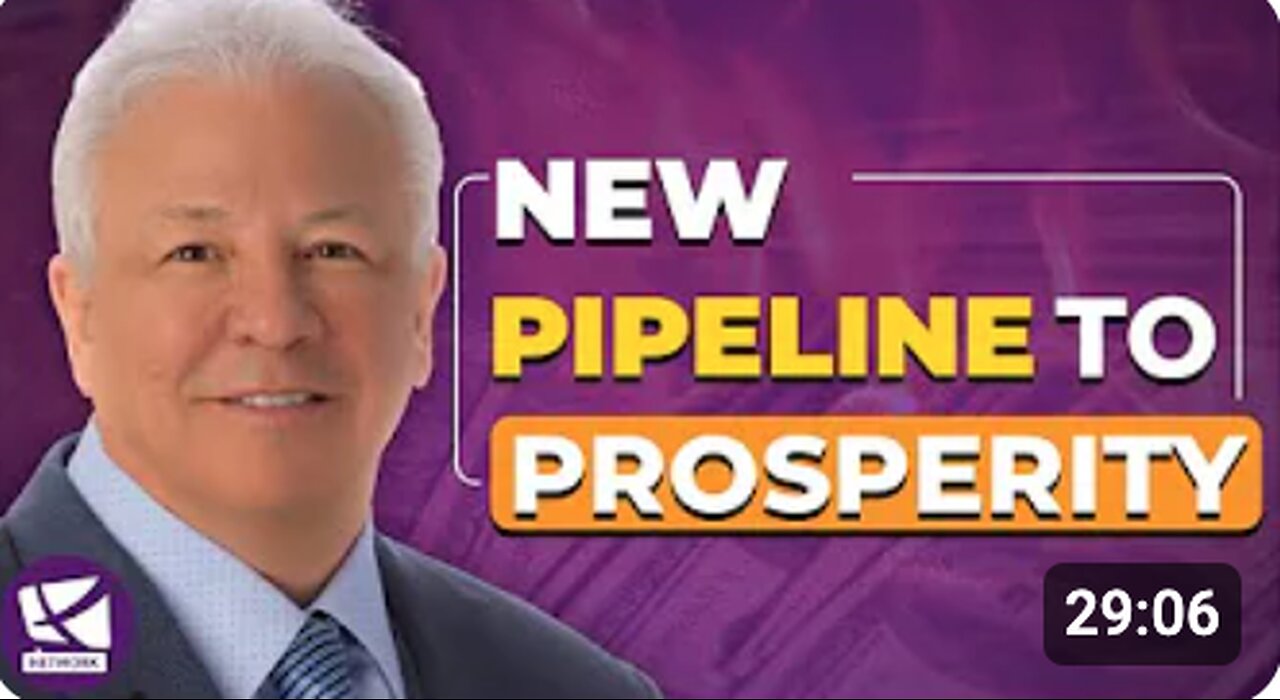Premium Only Content

How Canada's New Pipeline is Shaping Oil and Gas Economics - Mike Mauceli, Rory Johnston
In this episode of the Energy Show with REI Energy, host Mike Mauceli is joined by Rory Johnston, founder of Commodity Context, to explore the significant impact of Canada's new Trans Mountain Pipeline Expansion (TMX). This episode delves deep into the complexities of the energy sector, focusing on how the TMX is poised to reshape the Canadian and global oil markets.
Introduction to the Trans Mountain Pipeline Expansion
The Trans Mountain Pipeline Expansion (TMX) has been a topic of much debate and anticipation, particularly regarding its potential effects on American oil and gas prices and the broader global economy. Initially proposed in the early 2010s by Kinder Morgan, the TMX aims to triple the capacity of the existing 70-year-old pipeline from 300,000 barrels per day to an impressive 890,000 barrels per day. Despite numerous political and environmental hurdles, the pipeline became operational in the summer of 2023, marking a significant milestone for Canadian oil producers.
Rory Johnston's Expertise in the Oil Sector
Rory Johnston brings a wealth of knowledge to the discussion, having had an extensive career in commodity economics, including leading research at Scotiabank. His platform, Commodity Context, offers data-driven insights into the commodity market, particularly oil. Rory’s expertise provides a well-rounded understanding of the TMX and its broader implications.
Key Implications of the TMX
The TMX is a game-changer for Canada, which relies heavily on oil exports to the United States. With over 95% of Canadian crude heading south, the TMX offers much-needed diversification, allowing Canadian producers to access Asian markets, particularly China and India. This shift reduces Canada's dependency on U.S. demand, offering more stability and strategic opportunities for Canadian oil.
Technical Insights on Crude Oil Grades
Rory provides a detailed comparison of different crude oil types, explaining how density and sulfur content affect market value and refining complexity. Understanding these technical aspects is crucial for grasping the economic advantages of various crude grades and the role of specialized refining facilities.
Pipeline vs. Rail: A Safer and Cost-Effective Alternative
The episode also highlights the inefficiencies of relying on rail for oil transportation, particularly during peak production periods. The TMX offers a more cost-effective and safer alternative, ensuring long-term stability for Canadian oil exports.
Future of Pipeline Infrastructure in Canada
Looking forward, Rory discusses the need for further investments in Canadian pipeline infrastructure, even as the TMX provides much-needed relief. He also touches on the political dimensions that could affect future projects, including the unlikely revival of Keystone XL.
-----
Disclaimer: The information provided in this video is for educational and informational purposes only. It should not be considered as financial advice or a recommendation to buy or sell any financial instrument or engage in any financial activity.
The content presented here is based on the speaker's personal opinions and research, which may not always be accurate or up-to-date. Financial markets and investments carry inherent risks, and individuals should conduct their own research and seek professional advice before making any financial decisions.
-
 7:07
7:07
The Rich Dad Channel
2 days agoWhat Does God Want Done? (This Question Will Change Your Life)
5.84K3 -
 1:27:01
1:27:01
Tate Speech by Andrew Tate
2 hours agoEMERGENCY MEETING EPISODE 94 - SOUTH KOREAN BBQ
42.2K34 -
 LIVE
LIVE
The Quartering
1 hour agoWoke Snow White Trailer Savaged, South Korea Marshall Law, Woke Journo Humiliated & CocaCola Roasted
3,703 watching -
 1:17:50
1:17:50
Russell Brand
2 hours ago"NO ONE IS ABOVE THE LAW! - Just When You Thought It Couldn’t Get Crazier! – SF506
74.2K77 -
 LIVE
LIVE
vivafrei
2 hours agoRay Epps Fed-Surrection Cover-Up? Hunter Biden Pardon Fallout! Plan-Demic Failures & MORE!
3,407 watching -
 LIVE
LIVE
MDGgamin
3 hours ago🔴LIVE- Wake Up Stream Repeat - Games & Chatting - #RumbleTakeover
179 watching -
 1:38:13
1:38:13
Mostly Sports With Mark Titus and Brandon Walker
22 hours agoThe World Needs More Jameis Winston & Bo Nix | Mostly Sports EP 302 | 12.3.24
15.2K2 -
 DVR
DVR
TheAlecLaceShow
4 hours agoDoes Racism Exist? Guest: Franck Zanu | Elon’s Viral Meme | Hunter Pardon | The Alec Lace Show
5.07K2 -
 LIVE
LIVE
G2G Gaming Channel
6 hours agoI heard Smite, So Im here! #RumbleTakeOver #RumbleGaming
142 watching -
 15:36
15:36
Neil McCoy-Ward
2 hours ago🚨 Emergency Martial Law Declared, Special Forces Deployed...
12.7K5